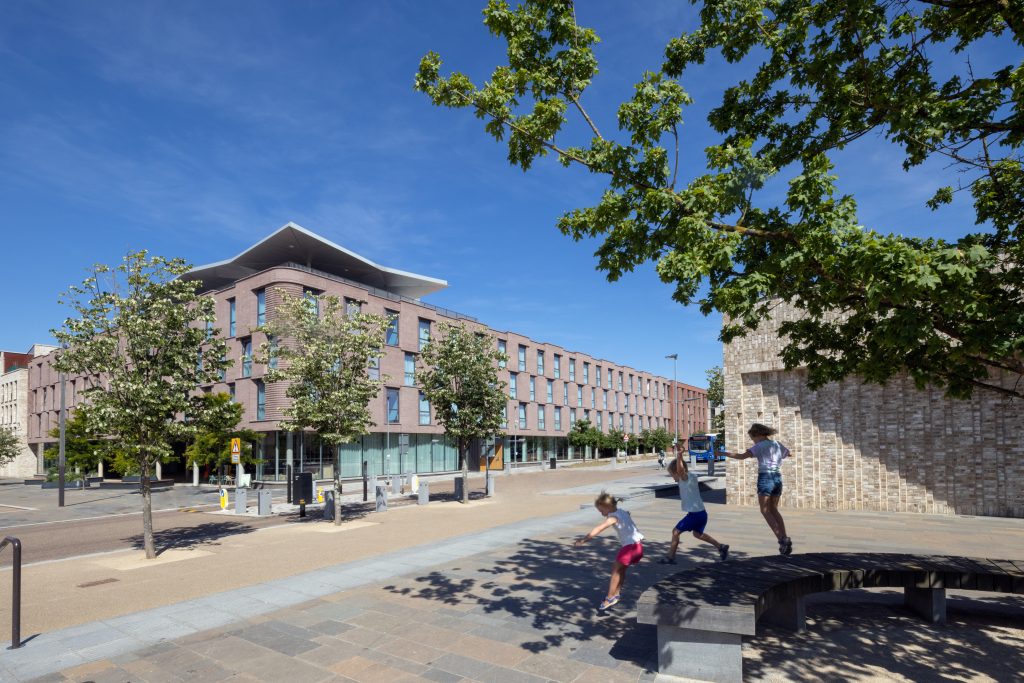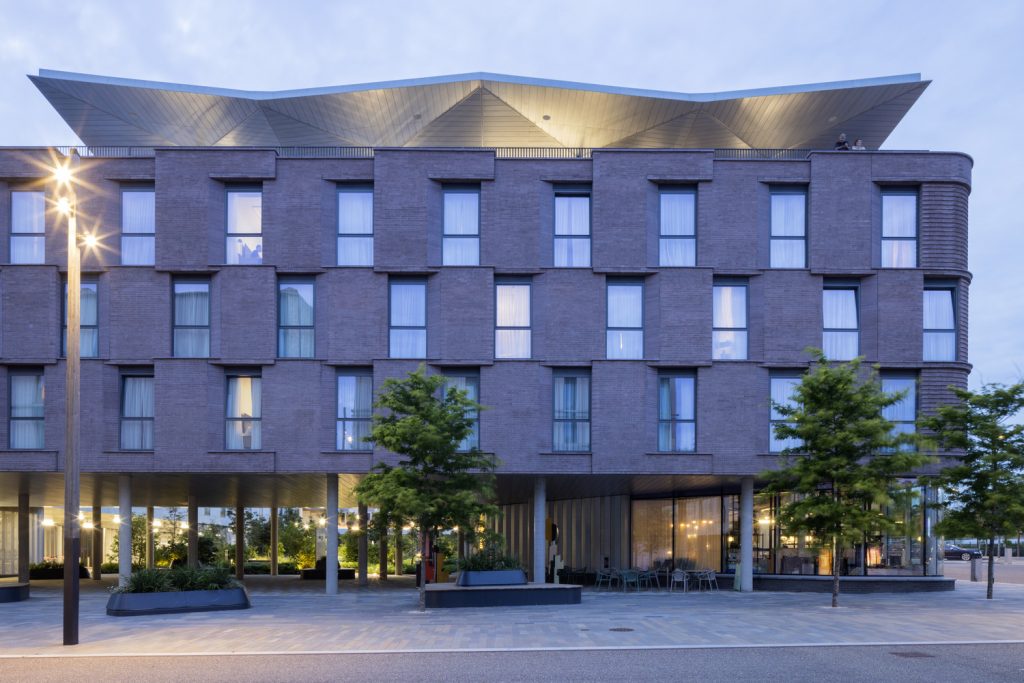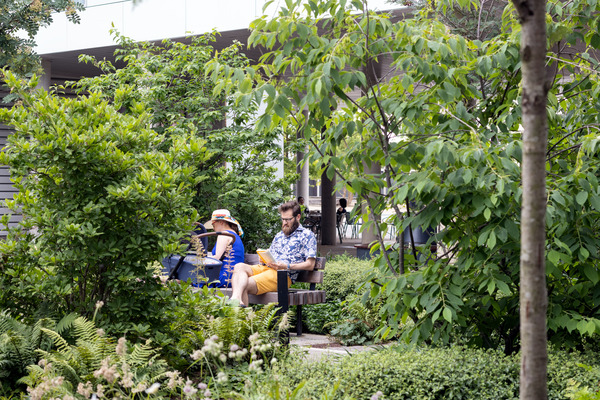Ergebnisse [0]

We’re very happy to have received a BREEAM Excellent rating for our Eddington Hotel project in north-west Cambridge with an overall score of 71.5%. Its successes include flexibility, material usage, waste management, renewable energy provision and biodiversity improvement.
BREEAM stands for Building Research Establishment Environmental Assessment Methodology and is a sustainability assessment framework established in 1990, which uses recognised methods of performance to evaluate a building’s specification, design, construction, and use.
Designed to take longevity and adaptability into account, the hotel’s efficient structure, achieved through a repetitive, rational structural grid and non-structural partitions allows for conversion to accommodate alternative uses should the need arise, thereby extending its operational lifespan. Facade optimisation studies and off-site pre-cutting of materials ensured that any off-cuts created during prefabrication were effectively repurposed or made into special-shaped blocks in the factory, rather than being discarded on site. Preference was given to local materials like Lignacite concrete masonry, which has a high recycled content. Internal finishes prioritised biogenic materials including timber flooring and natural fibre carpets.

The implementation of a comprehensive Site Waste Management plan during construction significantly reduced waste, with 99.98% diversion from landfill. This achievement was realised through strategies such as repurposing inert waste from excavation and demolition as infill on site.
Careful consideration was given to the transport strategy, connecting the development to its surroundings, and promoting cycling and public transport. Consultation with Camcycle (the Cambridge Cycling Campaign) cemented this and led to the integration of over 200 cycle spaces, including 40 hire cycles, good quality facilities and network connections.
With an EPC rating of A, the project includes air source heat pumps, 555 photovoltaic solar panels generating over 10% of energy used and MVHR (Mechanical Ventilation with Heat Recovery) in the guest bedrooms and public areas. These moves contribute to a 20% reduction in carbon compared to the Building Regulations 2013, which is also north-west Cambridge policy.

The hotel development is built on what was previously tree-free, arable farmland of low ecological value. The project’s driving concept, a large, planted courtyard, is conceived as a social space available for use by the whole community and provides a significantly improved habitat for animals and insects in the area. BREEAM excellent was a minimum requirement from the University of Cambridge, and the whole masterplan also meets this standard, commendable for a development of this scale. This is especially good because it ensures that elements such as SuDs and biodiversity are then connected on a system wide level.
BREEAM can be seen as simplistic because of the nature of the points structure; this type of assessment inevitably misses more nuanced design moves and can sometimes reward elements that wouldn’t be viewed as best practice. In terms of challenges, the process was lengthy, especially receiving the final certification. That it’s internationally recognised makes it useful for benchmarking. Overall, we found it a useful framework for certification, aiming for a holistic view of the process and project.
Our scores for each category:
Management 71
Health and wellbeing 50
Energy 63
Transport 73
Water 78
Materials 71
Waste 100
Land use and Ecology 60
Pollution 69
Innovation 30
Overall 71.5%